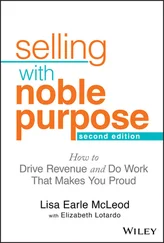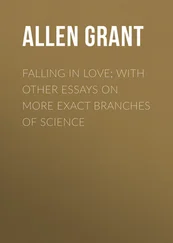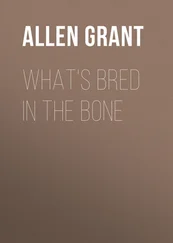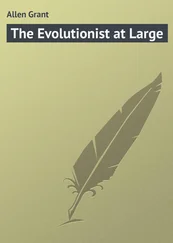Grant Allen - Hilda Wade, a Woman with Tenacity of Purpose
Здесь есть возможность читать онлайн «Grant Allen - Hilda Wade, a Woman with Tenacity of Purpose» — ознакомительный отрывок электронной книги совершенно бесплатно, а после прочтения отрывка купить полную версию. В некоторых случаях можно слушать аудио, скачать через торрент в формате fb2 и присутствует краткое содержание. Жанр: foreign_prose, literature_19, foreign_antique, на английском языке. Описание произведения, (предисловие) а так же отзывы посетителей доступны на портале библиотеки ЛибКат.
- Название:Hilda Wade, a Woman with Tenacity of Purpose
- Автор:
- Жанр:
- Год:неизвестен
- ISBN:нет данных
- Рейтинг книги:3 / 5. Голосов: 1
-
Избранное:Добавить в избранное
- Отзывы:
-
Ваша оценка:
- 60
- 1
- 2
- 3
- 4
- 5
Hilda Wade, a Woman with Tenacity of Purpose: краткое содержание, описание и аннотация
Предлагаем к чтению аннотацию, описание, краткое содержание или предисловие (зависит от того, что написал сам автор книги «Hilda Wade, a Woman with Tenacity of Purpose»). Если вы не нашли необходимую информацию о книге — напишите в комментариях, мы постараемся отыскать её.
Hilda Wade, a Woman with Tenacity of Purpose — читать онлайн ознакомительный отрывок
Ниже представлен текст книги, разбитый по страницам. Система сохранения места последней прочитанной страницы, позволяет с удобством читать онлайн бесплатно книгу «Hilda Wade, a Woman with Tenacity of Purpose», без необходимости каждый раз заново искать на чём Вы остановились. Поставьте закладку, и сможете в любой момент перейти на страницу, на которой закончили чтение.
Интервал:
Закладка:
We paused a moment, while I puffed smoke at the photograph again. “Well,” I said at last, “her face looks to me really simple and nice. It is a good face. Do you see her often?”
“Oh, no; she’s on tour.”
“In the provinces?”
“M’yes; just at present, at Scarborough.”
“But she writes to you?”
“Every day.”
“Would you think it an unpardonable impertinence if I made bold to ask whether it would be possible for you to show me a specimen of her letters?”
He unlocked a drawer and took out three or four. Then he read one through, carefully. “I don’t think,” he said, in a deliberative voice, “it would be a serious breach of confidence in me to let you look through this one. There’s really nothing in it, you know—just the ordinary average every-day love-letter.”
I glanced through the little note. He was right. The conventional hearts and darts epistle. It sounded nice enough: “Longing to see you again; so lonely in this place; your dear sweet letter; looking forward to the time; your ever-devoted Sissie.”
“That seems straight,” I answered. “However, I am not quite sure. Will you allow me to take it away, with the photograph? I know I am asking much. I want to show it to a lady in whose tact and discrimination I have the greatest confidence.”
“What, Daphne?”
I smiled. “No, not Daphne,” I answered. “Our friend, Miss Wade. She has extraordinary insight.”
“I could trust anything to Miss Wade. She is true as steel.”
“You are right,” I answered. “That shows that you, too, are a judge of character.”
He hesitated. “I feel a brute,” he cried, “to go on writing every day to Sissie Montague—and yet calling every day to see Miss Tepping. But still—I do it.”
I grasped his hand. “My dear fellow,” I said, “nearly ninety per cent. of men, after all—are human!”
I took both letter and photograph back with me to Nathaniel’s. When I had gone my rounds that night, I carried them into Hilda Wade’s room and told her the story. Her face grew grave. “We must be just,” she said at last. “Daphne is deeply in love with him; but even for Daphne’s sake, we must not take anything for granted against the other lady.”
I produced the photograph. “What do you make of that?” I asked. “ I think it an honest face, myself, I may tell you.”
She scrutinised it long and closely with a magnifier. Then she put her head on one side and mused very deliberately. “Madeline Shaw gave me her photograph the other day, and said to me, as she gave it, ‘I do so like these modern portraits; they show one WHAT MIGHT HAVE BEEN.’”
“You mean they are so much touched up!”
“Exactly. That, as it stands, is a sweet, innocent face—an honest girl’s face—almost babyish in its transparency but… the innocence has all been put into it by the photographer.”
“You think so?”
“I know it. Look here at those lines just visible on the cheek. They disappear, nowhere, at impossible angles. AND the corners of that mouth. They couldn’t go so, with that nose and those puckers. The thing is not real. It has been atrociously edited. Part is nature’s; part, the photographer’s; part, even possibly paint and powder.”
“But the underlying face?”
“Is a minx’s.”
I handed her the letter. “This next?” I asked, fixing my eyes on her as she looked.
She read it through. For a minute or two she examined it. “The letter is right enough,” she answered, after a second reading, “though its guileless simplicity is, perhaps, under the circumstances, just a leetle overdone; but the handwriting—the handwriting is duplicity itself: a cunning, serpentine hand, no openness or honesty in it. Depend upon it, that girl is playing a double game.”
“You believe, then, there is character in handwriting?”
“Undoubtedly; when we know the character, we can see it in the writing. The difficulty is, to see it and read it BEFORE we know it; and I have practised a little at that. There is character in all we do, of course—our walk, our cough, the very wave of our hands; the only secret is, not all of us have always skill to see it. Here, however, I feel pretty sure. The curls of the g’s and the tails of the y’s—how full they are of wile, of low, underhand trickery!”
I looked at them as she pointed. “That is true!” I exclaimed. “I see it when you show it. Lines meant for effect. No straightness or directness in them!”
Hilda reflected a moment. “Poor Daphne!” she murmured. “I would do anything to help her.... I’ll tell what might be a good plan.” Her face brightened. “My holiday comes next week. I’ll run down to Scarborough—it’s as nice a place for a holiday as any—and I’ll observe this young lady. It can do no harm—and good may come of it.”
“How kind of you!” I cried. “But you are always all kindness.”
Hilda went to Scarborough, and came back again for a week before going on to Bruges, where she proposed to spend the greater part of her holidays. She stopped a night or two in town to report progress, and, finding another nurse ill, promised to fill her place till a substitute was forthcoming.
“Well, Dr. Cumberledge,” she said, when she saw me alone, “I was right! I have found out a fact or two about Daphne’s rival!”
“You have seen her?” I asked.
“Seen her? I have stopped for a week in the same house. A very nice lodging-house on the Spa front, too. The girl’s well enough off. The poverty plea fails. She goes about in good rooms and carries a mother with her.”
“That’s well,” I answered. “That looks all right.”
“Oh, yes, she’s quite presentable: has the manners of a lady whenever she chooses. But the chief point is this: she laid her letters every day on the table in the passage outside her door for post—laid them all in a row, so that when one claimed one’s own one couldn’t help seeing them.”
“Well, that was open and aboveboard,” I continued, beginning to fear we had hastily misjudged Miss Sissie Montague.
“Very open—too much so, in fact; for I was obliged to note the fact that she wrote two letters regularly every day of her life—‘to my two mashes,’ she explained one afternoon to a young man who was with her as she laid them on the table. One of them was always addressed to Cecil Holsworthy, Esq.”
“And the other?”
“Wasn’t.”
“Did you note the name?” I asked, interested.
“Yes; here it is.” She handed me a slip of paper.
I read it: “Reginald Nettlecraft, Esq., 427, Staples Inn, London.”
“What, Reggie Nettlecraft!” I cried, amused. “Why, he was a very little boy at Charterhouse when I was a big one; he afterwards went to Oxford, and got sent down from Christ Church for the part he took in burning a Greek bust in Tom Quad—an antique Greek bust—after a bump supper.”
“Just the sort of man I should have expected,” Hilda answered, with a suppressed smile. “I have a sort of inkling that Miss Montague likes HIM best; he is nearer her type; but she thinks Cecil Holsworthy the better match. Has Mr. Nettlecraft money?”
“Not a penny, I should say. An allowance from his father, perhaps, who is a Lincolnshire parson; but otherwise, nothing.”
“Then, in my opinion, the young lady is playing for Mr. Holsworthy’s money; failing which, she will decline upon Mr. Nettlecraft’s heart.”
We talked it all over. In the end I said abruptly: “Nurse Wade, you have seen Miss Montague, or whatever she calls herself. I have not. I won’t condemn her unheard. I have half a mind to run down one day next week to Scarborough and have a look at her.”
“Do. That will suffice. You can judge then for yourself whether or not I am mistaken.”
Читать дальшеИнтервал:
Закладка:
Похожие книги на «Hilda Wade, a Woman with Tenacity of Purpose»
Представляем Вашему вниманию похожие книги на «Hilda Wade, a Woman with Tenacity of Purpose» списком для выбора. Мы отобрали схожую по названию и смыслу литературу в надежде предоставить читателям больше вариантов отыскать новые, интересные, ещё непрочитанные произведения.
Обсуждение, отзывы о книге «Hilda Wade, a Woman with Tenacity of Purpose» и просто собственные мнения читателей. Оставьте ваши комментарии, напишите, что Вы думаете о произведении, его смысле или главных героях. Укажите что конкретно понравилось, а что нет, и почему Вы так считаете.












